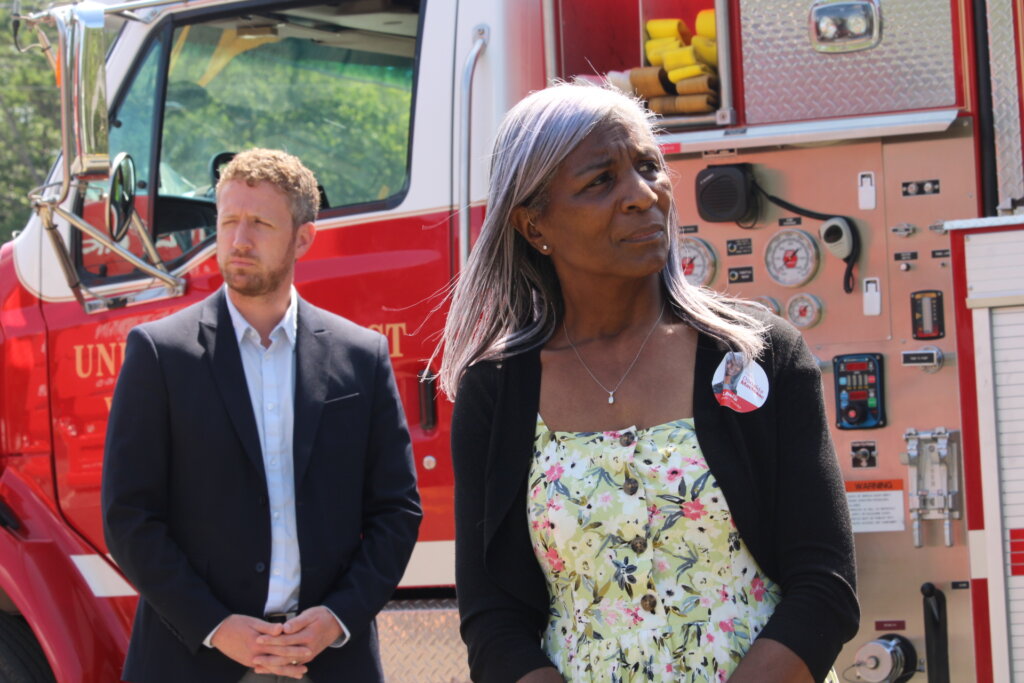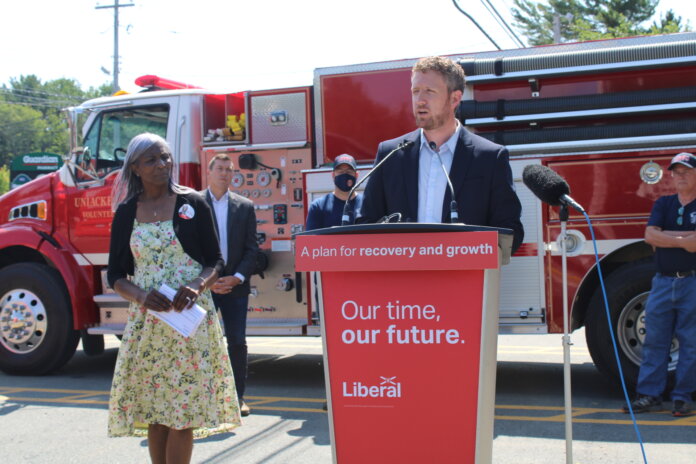
MOUNT UNIACKE: A chance encounter between a businesswoman and the now Liberal MP for Kings-Hants during the 2019 federal election campaign is being credited with seeing firehalls across N.S. become eligible for support from a federal program—should Iain Rankin’s Liberals be re-elected on Aug. 17.
At an election stop in Mount Uniacke under warm sunny skies, Rankin said the province will back a federal program that sees firehalls become eligible for infrastructure spending through a newly created category in the Canada Community-Building Fund Program.
In 2019 during the federal election campaign, Hantsport volunteer firefighter and former municipal councillor Jennifer Daniels had a chance encounter with Kody Blois, who was on the campaign trail and had stopped by the florist and flower shop Daniels operates in Windsor.
She asked him why the federal Gas Tax Fund (what the CCBF was formerly known as) didn’t have a way to support volunteer fire halls with their needs.
“Because I viewed firehalls as a municipal asset, part of the services provided by municipalities that contribute to social and economic well-being of our communities,” Daniels told a crowd on hand for the announcement, including media. “The federal gas tax (fund) has always been welcomed as a boost to rural communities, allowing them to be more sustainable places to work and live.
“As communities grow with the help of these investments, so does the need for public fire and life safety protection.”
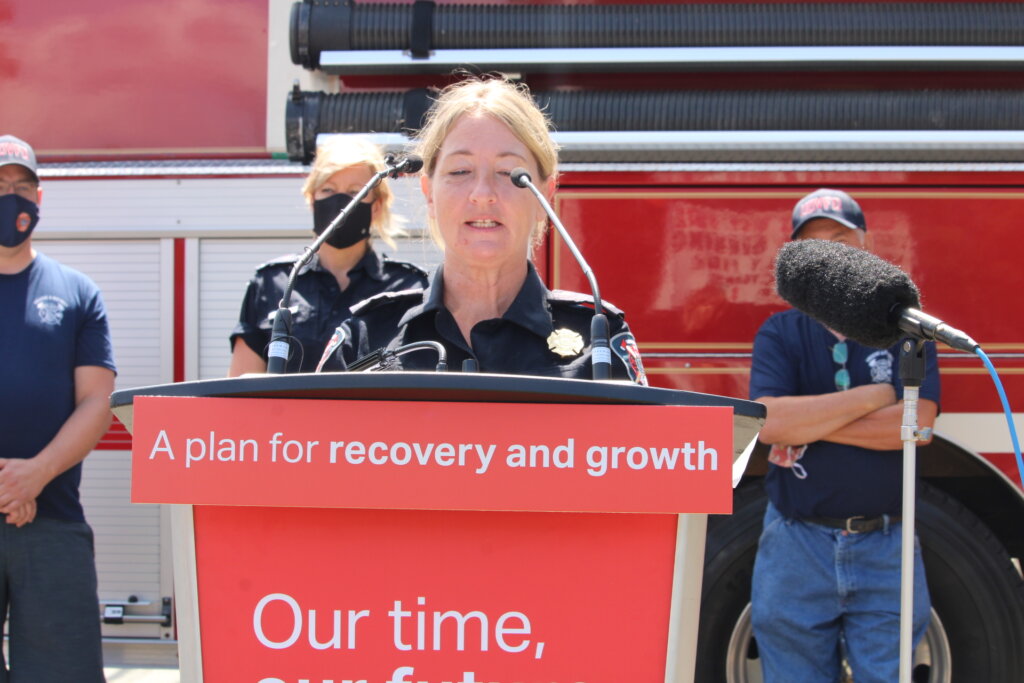
Blois said firehalls across rural East Hants will benefit greatly from this news and is one he hopes the Municipality of East Hants will take advantage of when needed.
“As you know our communities are different across the Municipality of East Hants,” said Blois. “Communities like Enfield and Elmsdale that have a larger catchment area that comes with the tax base sometimes they’re well taken care of. I think of communities like Noel. I think of Maitland.
“I think of Walton and even here in Mount Uniacke where this is going to be available to them to take advantage of.”
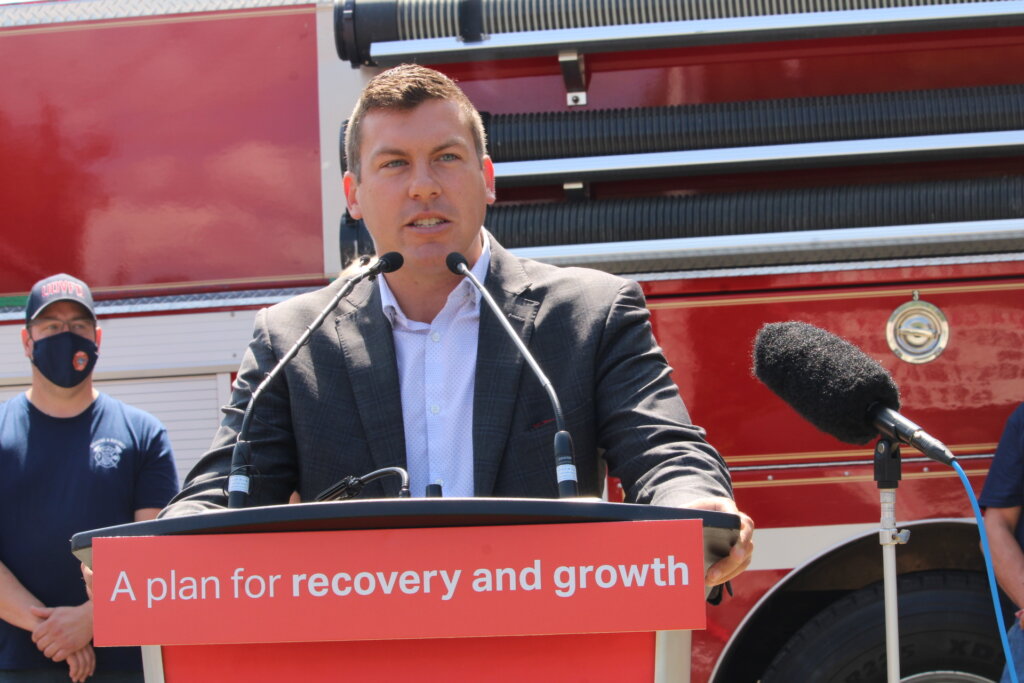
The MP for the riding is the chair of the National Liberal Rural caucus and has been advocating for the change.
“If there is something that has to go on the capital project side, we want the municipal councils to have the opportunity to use that funding towards key infrastructure if they so choose,” he said. “It’s giving municipalities another tool to respond to these critical infrastructure needs.”
He also said he hoped all provincial party’s would pledge to sign onto the agreement with the federal government.
Through the program municipalities will be able to funnel funding to rural fire departments to cover the costs of basic infrastructure maintenance. It did not previously list firehalls as an eligible project for funding.
Rankin, who was in Mount Uniacke to campaign and tour with candidate Donalda MacIsaac, said adding firehalls will make them eligible for funding to help with “critical fire station infrastructure such as roofs, new flooring and basic maintenance.”
The fund has had 18 categories of projects that qualified for infrastructure funding, but until now, fire halls had not been eligible.
If he was to be re-elected, Rankin said he would make the funding available to rural firehalls from one end of the province to the other as soon as possible.
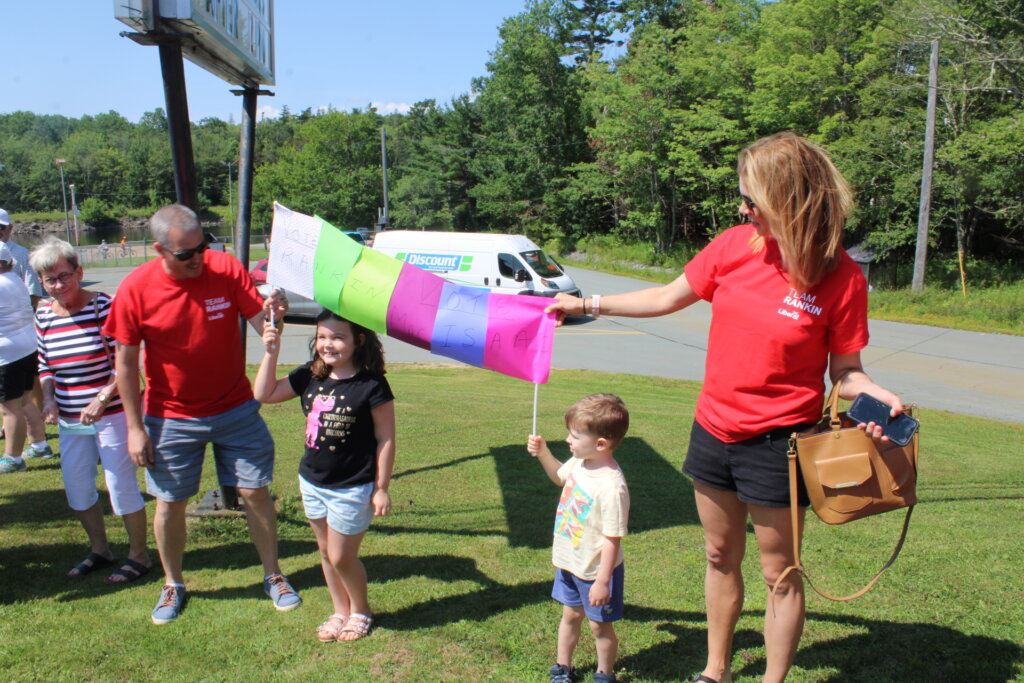
Daniels said the reason she approached Blois that day in 2019 when he was at her shop was because she had become frustrated firehalls were excluded from the gas tax funding model.
“This new strategic investment will help alleviate the fundraising burden shouldered by the volunteer firefighters,” she said. “Hopefully, this will also aid in the future recruitment, retention and sustainability of the volunteer fire services in our communities.”
The federal government announced recently that N.S. will be receiving $58 million through the fund program for 2020-2021 with a top-up of an additional $55 million.
Blois said having firehalls included in the bilateral agreement will help support the men and women who volunteer as firefighters in our communities.
“It’s a small policy change that has a big potential benefit in rural Nova Scotia,” added Blois.
